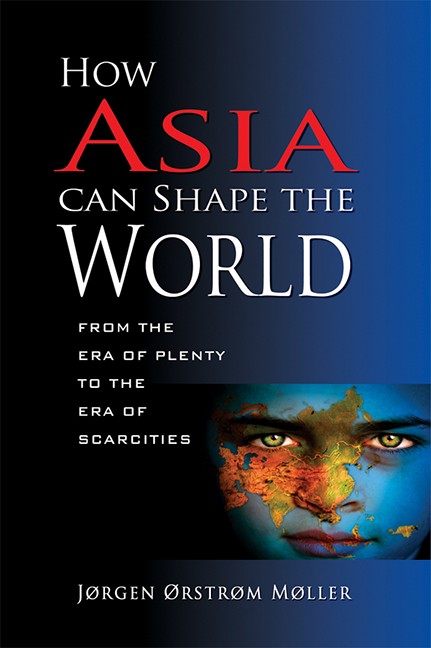Preface and Acknowledgements
Published online by Cambridge University Press: 21 October 2015
Summary
The future of Asia is like a magnet for politicians, scholars, and business people. All are fascinated by the continent obviously entering a crucial phase of its development, shaping not only its own future, but also determining the socio-economic global framework for decades even centuries to come. Around 500 years ago the pendulum started to swing from Asia to Europe and since then “the West” has dominated the world. This is coming to an end. It looks likely that a number of converging influences will gradually put Asia in the driver's seat. It remains to be seen whether Asia is ready and willing to respond and if so what kind of socio-economic model will emerge, whether it can solve Asia's many problems and at the same time constitute a framework for stable future development that may even be attractive for the rest of the world as the Western model was for centuries. There are no easy answers to these questions and when we seem to have found some, other questions arise.
As the reader will discover, my first inclination is to analyse and look at events from the perspective of an economist. There are many brands of economics; I belong to the Keynesian School. The weaknesses of economic analysis have been exposed over a number of years — not only recently and to a degree that it is questionable whether it can be classified as a science after all. This has opened the door for interdisciplinary analyses; which is what I have tried to put forward in my work, weaving many threads together. Interdisciplinary analysis is not new. In an Asian context inter alia the great socio-economist Gunnar Myrdal published Asian Drama in 1968. My ambition is, however, to go somewhat further by including aspects beyond the social sciences, which, as I see it, makes the work fascinating, but also runs the risk of conveying the impression of superficiality. But you cannot have it both ways.
The common denominator for the book may be the emphasis of groups, working together, sharing knowledge, and grappling with the new phenomenon of burden sharing inside group frameworks. Burden sharing — either absolute or relative — becomes necessary as the world moves from two hundred years of plenty (the era of plenty) to the age of scarcities.
- Type
- Chapter
- Information
- How Asia Can Shape the WorldFrom the Era of Plenty to the Era of Scarcities, pp. xi - xivPublisher: ISEAS–Yusof Ishak InstitutePrint publication year: 2010



